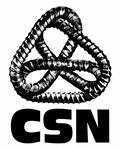CALGARY, Nov. 1, 2013 /CNW Telbec/ - The Confédération des syndicats nationaux (CSN) condemns Bill C-4 as well as a series of resolutions tabled at the Conservative Party of Canada's (CPC) convention which target the trade unions safeguarding the rights of millions of Canadian workers and whose objective is to eliminate the country's sole public broadcaster.
Jean Lortie, the Secretary General of the CSN, will speak tonight at a conference held by the Common Causes coalition, which federates several progressive organizations who share one goal: To stop the Conservative Party from being re-elected in 2015. The mayor of Calgary will be hosting the event where several key figures will be addressing the crowd, such as David Suzuki and Maude Barlow as well as other trade union leaders and Aboriginal activists.
Currently in Calgary with members of the UCCO-SACC-CSN, Jean Lortie stressed that the resolutions tabled at the convention attack the fundamental rights of Canadian workers. "This is the farthest a federal government has ever gone in attacking the workers! The CPC's efforts to take away the people's freedom of association and right to collective bargaining agreements constitute a challenge to the exercise of legal rights recognized in Canada and which are part of the UN's Universal Declaration of Human Rights and in the fundamental conventions of the International Labour Organization. They are clearly trying to silence anyone criticizing the current government, and that is simply unacceptable in a democratic country."
Access to information and the production of quality content are also vital to the exercise of democracy. "By proposing to abolish the CBC/Radio-Canada's public funding, by using the 'user pays' principle, by challenging the Broadcasting Act and by restricting the Canadian Radio-television and Telecommunications Commission's (CRTC) role, the CPC is planning to abolish the CBC/Radio-Canada," declared the President of the Syndicat des communications de Radio-Canada (FNC-CSN), Alex Levasseur.
Furthermore, the goal of one of the resolutions is to change the pension plan of public sector employees into a money purchase plan. "Clearly, the resolutions tabled at the CPC's convention seek to emulate the backward American labour laws model which has considerably weakened the country's trade unions as well as impoverished the American middle class. This model only benefits companies and the elite who keep getting richer and richer. The CSN cannot accept such a rollback of workers' rights that targets several of its members working at the federal level. We will work relentlessly to show our opposition," added Mr. Lortie.
It is worth noting that the CSN is very involved with many progressive groups all over the country, including Aboriginal associations, as it is getting ready for the People's Social Forum, which will be held in Ottawa in 2014. Thousands of people are scheduled to attend this forum which aims at curbing the retrogressive policies of the Harper Government and of the CPC as well as proposing alternative social resolutions.
"Never had our members been the target of such attacks by this government, while at work or exercising their fundamental rights. Bill C-4, which seeks to revise the Canadian Labour Code, would politicize the health and safety of workers, and would affect all trade unions subject to federal jurisdiction, including the Syndicat des communications de Radio-Canada (FNC-CSN) and UCCO-SACC-CSN; quite the rollback," objected the President of UCCO-SACC-CSN, Kevin Grabowsky,
The Union of Canadian Correctional Officers UCCO-SACC-CSN represents 7,400 correctional officers working in 52 federal penitentiaries throughout Canada. The Syndicat des communications de Radio-Canada represents 1,600 members in the province of Québec and in Moncton and is affiliated with the Fédération nationale des communications-CSN, which is composed of 7,000 members working in culture and communications.
Founded in 1921, the CSN is a trade union federation that works towards a cohesive, democratic, just, fair and sustainable society. To this end, the CSN takes part in many debates that concern Quebeckers. The CSN federates almost 2,000 unions and represents more than 300,000 workers on a sectoral or professional basis within eight federations, as well as regionally via 13 central councils, primarily in the province of Quebec.
SOURCE: CSN

Lyle Stewart
Department of Communications - CSN
Phone number: 514 796-2066
[email protected]

Share this article